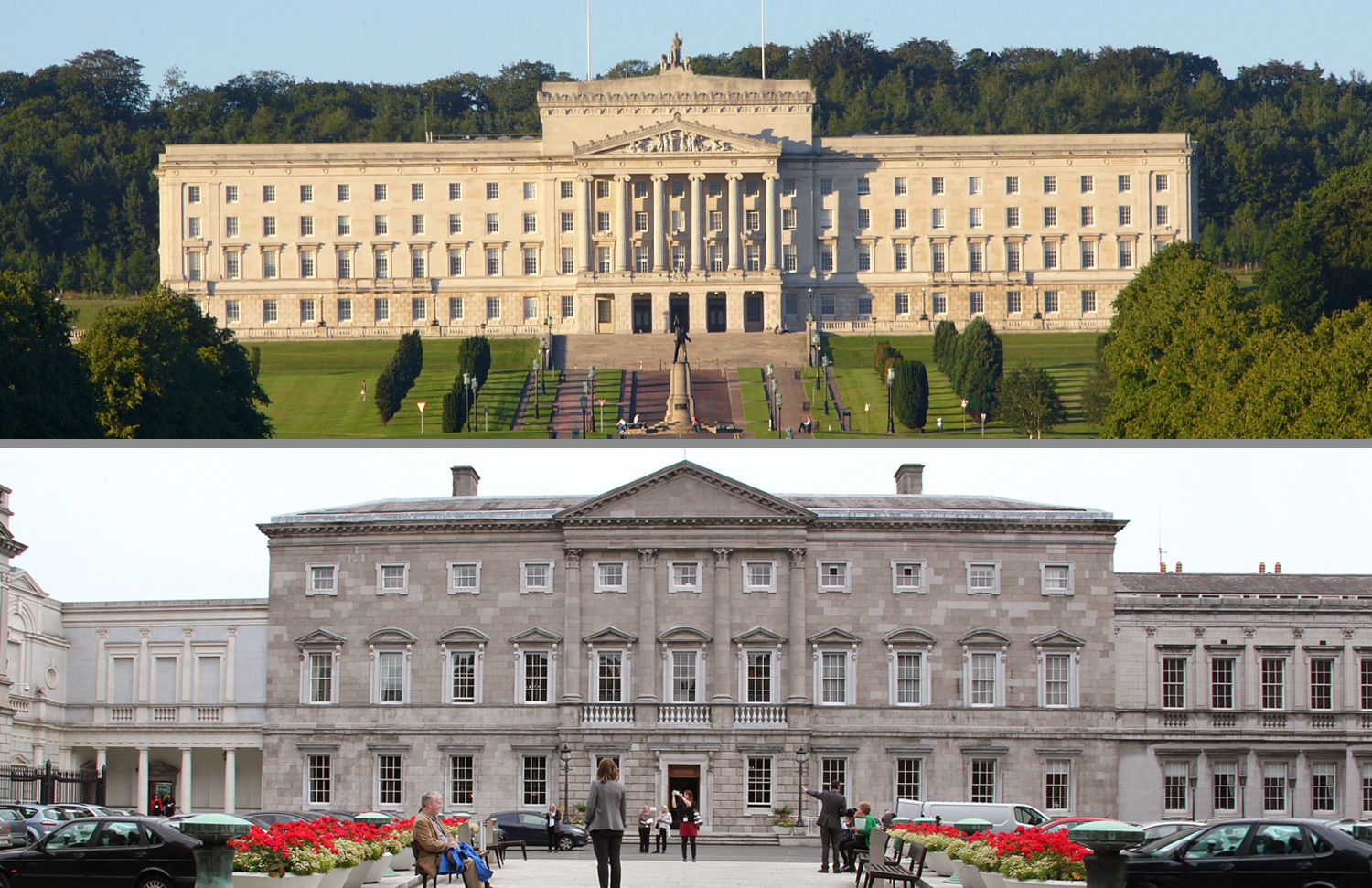THE imposing Stormont Assembly – perched on a hill, on the outer limits of Belfast – has always been a place apart.
If you spend too much time there it’s easy to get sucked into the Stormont bubble and lose perspective. It must be something to do with the altitude.
But every so often the outside world intrudes on affairs there.
The Republic of Ireland’s general election is one of those moments.
The contest threatens to be the most intriguing in recent history, following the trauma of economic crises and the emergence of a raft of smaller parties and independents.
But from a northern perspective, the election will also underline the degree to which politics on either side of the border have become more closely connected.
In fact, this Dáil contest could have more bearing on Northern Ireland's political future than the Stormont Assembly election planned for May.
A POLL WITH CROSS-BORDER CONNECTIONS
Clear divisions remain firmly in place between the politics of the north and south - not least Northern Ireland's continued status as an integral, and heavily subsidised, part of the UK.
But new political connections have been built across the border.
The peace process led to the creation of permanent government structures linking Stormont and the Dáil.
Now the election of a stable government in Dublin could be important for the delivery of key commitments in Northern Ireland.
The outgoing Irish government pledged to invest £75million in the north's biggest infrastructure target - the upgrade of the A5 route that should ultimately provide a dual-carriageway road link between Derry/Londonderry and Dublin.
The "Fresh Start" political deal, recently brokered to save Stormont, also entails a Dublin commitment to help end paramilitary activity in the north and tackle cross-border crime.
The input of the new Irish government could also be important in resolving the deadlock over dealing with the toxic legacy of the Troubles in Northern Ireland.
And while the top domestic priority of the next Dublin administration will be to deliver a full economic recovery in the south, achieving that is also vital to boosting business north of the border.
The widening range of cross-border political connections doesn’t represent a seismic shift, but the significant point is that until fairly recently many of the links simply didn’t exist.
So something new has been happening.
EYES WIDE SHUT
The choice of government in Dublin has practical relevance for Belfast, but there are also deeper implications for party politics on the island.
The Dáil election results could determine whether or not Fianna Fáil decides to deliver on its previous pledge to begin contesting northern elections. If that happens it could have a significant impact.
Meanwhile, Sinn Féin will soon learn whether it can cement its new cross-border presence following the major breakthrough it made in the republic’s 2011 general election.
Nothing is certain, but in this election Gerry Adams’ party has an opportunity to set down deeper roots throughout the republic that could help it build for a long-term future.
The DUP is confident that it can protect its interests from a position of strength at Stormont.
Unionists also take comfort in the refusal of other Dáil parties to share power with Sinn Féin, but they must know that could change with time.
A NEW FOCUS?
A lot of these developments are slipping below the radar in Northern Ireland.
For example, the low level of cross border news coverage means that the nature of Sinn Féin's growth in the south over the last six years is not fully understood by many people north of the border.
This is despite the fact that Sinn Féin's southern ambitions have been dictating its tactics at the Assembly for the last decade and will continue to do so.
Beyond the narrow confines of politics, other elements of cross-border life are thriving but are also under-reported, according to some nationalists.
The north-south connections don't herald anything as dramatic as the ending of partition, but when combined with population shifts in Northern Ireland, they could lead to the formal strengthening of relationships between the two parts of the island.
Regardless of the fortunes of individual political parties, it may be increasingly important to community relations in Northern Ireland that the cross-border dynamic is better understood and more fully reflected.
Life in the Stormont bubble isn’t the whole story. This election might provide an opportunity to begin to take a broader perspective.
 By
By
